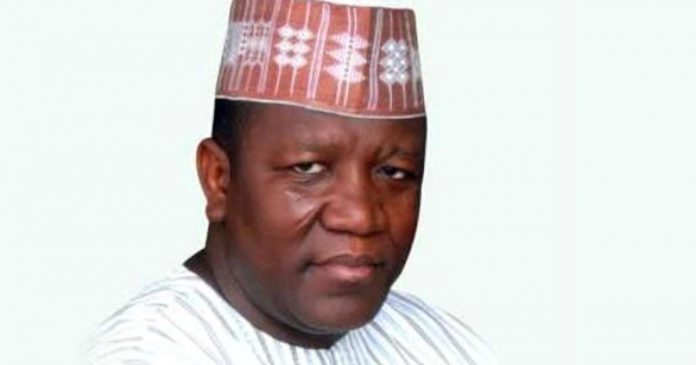Chairman of Nigeria Governors Forum (NGF) and Governor of Zamfara State, Abdulaziz Yari, has warned that Nigeria could be heading into another round of recession.
He made statement at the opening ceremony of the induction programme for newly-elected and returning governors put together by NGF Secretariat, at the State House Conference Center, Abuja.
Yari warned incoming governors to be prepared for the possibility of another cycle of recession by the mid-2020 to third quarter of 2021.
Nigeria had officially entered a recession for the first time in more than two decades, in August 2016, according to figures which showed that economy had contracted for a second consecutive quarter.
Yari said the outgoing governors have agreed that borrowing is never a reliable alternative to solving economic problems and has urged the incoming ones and other ties of government to multiply revenue generation bases so as to change the course of doing government business for the betterment of the people.
“On our part, we made a lot of achievements in infrastructural development and provision of social services because we enjoyed a relatively high oil price of about $100 to $114 per barrel between 2001 and the middle of 2014.
“However, by the mid-2014, the price of crude oil, which is sadly the main driving force of government’s expenditure, dropped to $75 per barrel.
It, therefore, became very difficult for many states to even pay salaries of their workers.
“This scenario is a wake-up call for all of you to come amply prepared to face these kinds of challenges especially since we are expecting the possibility of another cycle of recession by mid-2020 and which may last up to third quarter of 2021.
Your good spirit of stewardship will make you contain the situation should there be one. Also, as members of the National Economic Council, you must work hand in hand to boost the economy in tandem with the global best practices.
“Experience, they say, is the best teacher. Ours has been a challenging experience of managing state economies that are totally dependency on accruals from the federation account rather than exploring viable alternatives to run the economy.
For most of the states, internally generated revenues are nothing to write home about. You must, therefore, look inward by boosting your revenue generation base and also utilize them effectively for execution of projects that would touch the lives of your people.
You must not forget the high expectations of our people on us; now that the democracy is maturing day in day out the challenges of governance and service delivery are more demanding.”
While stressing the importance of seeking reliable alternative funding away from the federation account, the NGF chairman noted that the NGF and the National Economic Council led by Vice President, Yemi Osinbajo, have agreed that “borrowing is never a reliable alternative to solving our economic problems.
We must work hard among all the tiers of government to multiply our revenue generation bases so that together we change the course of doing government business for the betterment of our people.
“In so doing, key revenue agencies like the Nigeria National Petroleum Corporation, Federal Inland Revenue Service, the Nigerian Custom Service and other sister agencies must be made to work more effectively now that Mr. President has signed the much awaited National Minimum Wage law, pegging the minimum workers’ salaries at N30,000 per month.”
He urged the incoming governors to strengthen tax laws to encourage Nigerians to pay their taxes. According to him, “it is unfortunate that our people have a very negative attitude to payment of taxes in full, including corporate agencies.
“My take on this is that, as a country with over 200 million people, our individual and collective contributions in ensuring prompt payment of taxes can help the government achieve all its objectives.
For us to achieve these responsibilities, we have to strengthen our tax laws and to make them very effective in our task of building a better Nigeria.
“If the necessary measures are put in place to provide a working system, I am certain that at the end of the day, we are going to succeed in tackling unemployment, reducing poverty, ensuring food security and disease control as well as building a nation with a robust economy.”
The NGF chair reminded the governors and incoming ones that it will not be smooth ride as they begin new administration.
According to him, while the crude oil price was over $100 from 2011-15, the price noise dived to less than 75 percent from 2015 leading to recession.


